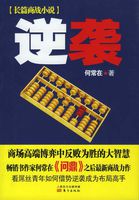ON my arrival at the Havana I found that Durham, who was still an invalid, had taken up his quarters at Mr. Crauford's, the Consul-General. Phoca, who was nearly well again, was at the hotel, the only one in the town. And who should I meet there but my old Cambridge ally, Fred, the last Lord Calthorpe. This event was a fruitful one, - it determined the plans of both of us for a year or more to come.
Fred - as I shall henceforth call him - had just returned from a hunting expedition in Texas, with another sportsman whom he had accidentally met there. This gentleman ultimately became of even more importance to me than my old friend. I purposely abstain from giving either his name or his profession, for reasons which will become obvious enough by-and-by; the outward man may be described. He stood well over six feet in his socks; his frame and limbs were those of a gladiator; he could crush a horseshoe in one hand; he had a small head with a bull-neck, purely Grecian features, thick curly hair with crisp beard and silky moustache. He so closely resembled a marble Hercules that (as he must have a name) we will call him Samson.
Before Fred stumbled upon him, he had spent a winter camping out in the snows of Canada, bear and elk shooting. He was six years or so older than either of us - I.E. about eight-and-twenty.
As to Fred Calthorpe, it would be difficult to find a more 'manly' man. He was unacquainted with fear. Yet his courage, though sometimes reckless, was by no means of the brute kind. He did not run risks unless he thought the gain would compensate them; and no one was more capable of weighing consequences than he. His temper was admirable, his spirits excellent; and for any enterprise where danger and hardship were to be encountered few men could have been better qualified. By the end of a week these two had agreed to accompany me across the Rocky Mountains.
Before leaving the Havana, I witnessed an event which, though disgusting in itself, gives rise to serious reflections.
Every thoughtful reader is conversant enough with them; if, therefore, he should find them out of place or trite, apology is needless, as he will pass them by without the asking.
The circumstance referred to is a public execution. Mr. Sydney Smith, the vice-consul, informed me that a criminal was to be garrotted on the following morning; and asked me whether I cared to look over the prison and see the man in his cell that afternoon. We went together. The poor wretch bore the stamp of innate brutality. His crime was the most revolting that a human being is capable of - the violation and murder of a mere child. When we were first admitted he was sullen, merely glaring at us; but, hearing the warder describe his crime, he became furiously abusive, and worked himself into such a passion that, had he not been chained to the wall, he would certainly have attacked us.
At half-past six next morning I went with Mr. Smith to the Campo del Marte, the principal square. The crowd had already assembled, and the tops of the houses were thronged with spectators. The women, dressed as if for a bull-fight or a ball, occupied the front seats. By squeezing and pushing we contrived to get within eight or nine yards of the machine, where I had not long been before the procession was seen moving up the Passeo. A few mounted troops were in front to clear the road; behind them came the Host, with a number of priests and the prisoner on foot, dressed in white; a large guard brought up the rear. The soldiers formed an open square. The executioner, the culprit, and one priest ascended the steps of the platform.
The garrotte is a short stout post, at the top of which is an iron crook, just wide enough to admit the neck of a man seated in a chair beneath it. Through the post, parallel with the crook, is the loop of a rope, whose ends are fastened to a bar held by the executioner. The loop, being round the throat of the victim, is so powerfully tightened from behind by half a turn of the bar, that an extra twist would sever a man's head from his body.
The murderer showed no signs of fear; he quietly seated himself, but got up again to adjust the chair and make himself comfortable! The executioner then arranged the rope round his neck, tied his legs and his arms, and retired behind the post. At a word or a look from the priest the wrench was turned. For a single instant the limbs of the victim were convulsed, and all was over.
No exclamation, no whisper of horror escaped from the lookers on. Such a scene was too familiar to excite any feeling but morbid curiosity; and, had the execution taken place at the usual spot instead of in the town, few would have given themselves the trouble to attend it.
It is impossible to see or even to think of what is here described without gravely meditating on its suggestions. Is capital punishment justifiable? This is the question I purpose to consider in the following chapter.













